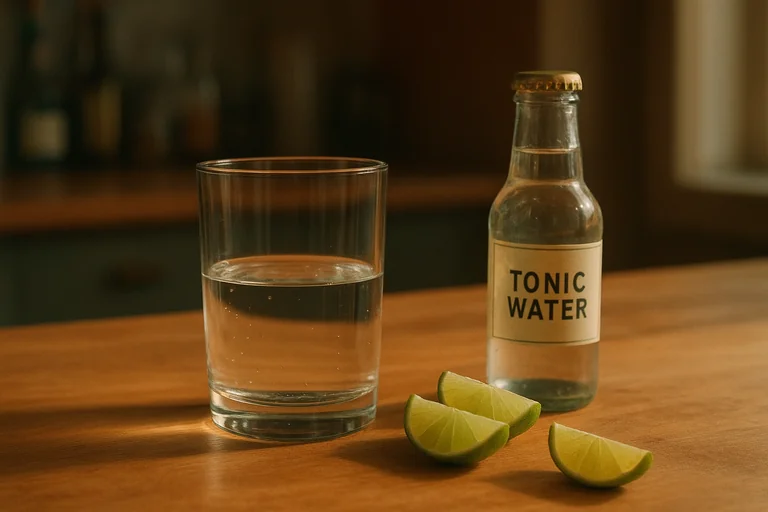A 2 minute assessment to get a personalized mental health or alcohol recovery plan.
Alcohol tweaks core brain systems that govern attention, memory, mood, impulse control, and sleep. In the short term, that's the buzz and the blur. With repeated heavy use, those same circuits can remodel in ways that make anxiety sharper and drinking more compulsive.
What You'll Discover:
- How alcohol immediately affects your brain's chemical messengers and memory formation.
- Why blackouts happen and what they signal about risk.
- The long-term structural changes visible on brain scans with heavy drinking.
- Why the "morning after" brings brain fog, anxiety, and heart palpitations.
- Specific thresholds that signal your brain is at real risk.
- A 7-step plan to protect your brain whether you're cutting down or quitting.
- When brain symptoms require urgent medical attention.
You wake up with fragments of last night - some moments crystal clear, others completely gone. Or maybe you've noticed your thinking feels slower, your anxiety sharper, your sleep worse since drinking became more frequent. You're wondering: is this temporary, or is something changing in my brain?
Here's what's actually happening: alcohol doesn't just "loosen you up." It alters fundamental brain systems that control everything from attention and memory to mood regulation and impulse control. Understanding these changes - and knowing when they matter - could be crucial for protecting your cognitive health.
What You Need to Know First
Before we dive into mechanisms, let's clarify key terms:
Acute effects = what happens during and after a drinking episode (hours to a day)
Chronic effects = brain changes seen with repeated heavy use over months and years
Blackout = an amnestic gap where you were awake and functioning, but your brain didn't store memories. It's a hippocampus problem, not a pass-out. This is a critical warning sign.
What Alcohol Does to Your Brain in the Moment
Turns Up Inhibition, Dampens Excitation
Alcohol acutely enhances GABA signaling - your brain's internal "brake" - and inhibits NMDA glutamate receptors, which drive your "go/learn" pathways. The net effect: slower reaction time, dulled attention, slurred speech, and that relaxed (or wobbly) feeling.
Triggers Your Reward System
Alcohol transiently boosts dopamine and related reward signals. This is part of why "another one sounds good." Over time, this learning loop strengthens cues and habits around drinking, making it harder to stop at one or two.
Disrupts New Memory Formation
At higher blood alcohol levels, your hippocampus can't properly encode experiences. This causes blackouts - hours of a night vanish from recall despite you being conscious and interacting. Risk rises with rapid intake (shots, chugging), drinking on an empty stomach, and sleep deprivation.
Scrambles Sleep Architecture
That nightcap might help you doze off, but alcohol fragments deep sleep and REM stages. This causes sympathetic nervous system rebound - the adrenaline-fueled wakefulness that leaves you feeling wired and anxious. Poor sleep amplifies next-day distractibility, especially if you have ADHD or anxiety. For more on how alcohol disrupts your cardiovascular system overnight, see our guide on how alcohol affects heart rate.
The "Morning After" Brain
Cognitive Hangover
Slower processing speed and weaker working memory linger even when your breath alcohol is zero. You're technically sober, but your brain is still catching up.
Mood Instability
Disrupted REM sleep and neurotransmitter rebound cause irritability and anxious spikes. You might feel on edge, snappy, or emotionally fragile - that's not just psychological; it's neurochemical.
Autonomic Overshoot
Higher resting heart rate and palpitations are common after binge-level nights. Your nervous system is in overdrive trying to rebalance.
What Repeated Heavy Drinking Does Over Time
Less Gray and White Matter Integrity
Large imaging studies like the UK Biobank show a dose-dependent relationship between alcohol intake and reduced brain volume. This isn't just in heavy drinkers - the trend appears even across ranges many consider "moderate." Effects particularly hit frontal regions (planning, impulse control) and the hippocampus (memory).
The implications: poorer decision-making, harder time learning new information, and increased impulsivity over time.
Brain Iron Accumulation and Cognitive Decline
In middle-aged adults, higher alcohol intake correlates with greater brain iron deposits (which is harmful) and poorer cognitive performance. Genetic analyses suggest this isn't just lifestyle confounding - there's a real biological relationship.
Neuroinflammation and Chemical Imbalance
Chronic alcohol exposure shifts your neurotransmitter systems (GABA, glutamate) and promotes inflammatory signaling in the brain. This sustains anxiety, irritability, and sleep problems even between drinks. It's why people often feel worse when they're not drinking, fueling the cycle.
Nutrition-Linked Brain Injury
Severe, prolonged heavy drinking impairs thiamine (vitamin B1) absorption. This risks Wernicke's encephalopathy - a neurologic emergency - and can progress to Korsakoff syndrome, which causes persistent memory impairment. Early thiamine treatment can be lifesaving and brain-saving.
Good News: Recovery Is Possible
With sustained reduction or abstinence, parts of this picture can improve. Sleep normalizes, mood steadies, and some brain metrics partially rebound. The earlier you change course, the more recovery you typically see.
Special Populations at Higher Risk
Adolescents and Young Adults
The developing brain shows heightened vulnerability. Alcohol use in adolescence is linked to accelerated gray-matter decline in frontal control regions and altered white-matter trajectories. This translates to riskier choices and learning difficulties. There's a strong case for delaying regular use.
People with ADHD, Anxiety, or Insomnia
Alcohol can feel like it "helps" in the moment, but it worsens sleep, executive function, and next-day anxiety. This fuels a relief-and-rebound loop that keeps drinking cues strong. If you have ADHD and struggle with alcohol, read our comprehensive guide on ADHD and alcohol use.
During Pregnancy
There's no known safe level of alcohol during pregnancy. Prenatal alcohol exposure can cause lifelong neurodevelopmental differences. If you're pregnant or trying to conceive, avoid alcohol. If stopping is hard, seek support immediately.
When Brain Risk Is Getting Real
Use concrete signals rather than waiting for "rock bottom":
Blackouts at Any Frequency
This is an important risk sign. Prioritize stopping binge drinking and consider medical support. A blackout means your hippocampus couldn't encode memories - that's serious.
Repeated Morning Anxiety, Brain Fog, and Poor Sleep After Drinking
Scale back quantity and stop drinking at least 3 hours before bed. These symptoms signal your brain's stress systems are in overdrive.
You're Drinking Most Days or in Binges
Binge drinking means approximately 4 or more drinks for women or 5 or more for men within about 2 hours. Expect measurable impacts on attention, memory, and mood. Make a specific plan to reduce.
Heavy, Long-Term Use with Nutrition Issues
Ask your clinician about thiamine screening and supplementation, plus evaluation for cognitive changes. Early intervention prevents severe complications.
A 7-Step Plan to Protect Your Brain
Step 1: Map Your Pattern (10 Minutes This Week)
Track when you drink, how much, how fast, with whom, and your sleep quality afterward. Circle binge-level nights and any memory gaps (blackouts). You need data before you can make informed changes.
Step 2: Pick a 4-Week Target
Reduce if you don't have withdrawal symptoms and are below moderate alcohol use disorder territory.
Quit for a month if blackouts, repeated binges, morning shakes or anxiety, or brain-fog days are common. If you've ever had severe withdrawal symptoms, do this with medical supervision.
Step 3: Change the Dose and Pace
- Cap at 2 drinks (women) or 3 drinks (men) maximum on any occasion
- Space drinks: one every 45-60 minutes
- Always eat food and drink water alongside alcohol
- Make "last drink at least 3 hours before bed" a hard rule to protect sleep-dependent memory consolidation
Step 4: Swap the State, Not Just the Drink
Recreate what you seek from alcohol - calm, social ease, or stimulation - using fast alternatives:
- Heat (hot shower or bath)
- Breathwork (4-7-8 breathing technique)
- A brisk 10-minute walk
- Call a friend
- Low-stakes social plans without alcohol
Step 5: Build Tripwires
If you notice memory gaps, can't track conversations, or your resting heart rate jumps more than 20 beats above baseline, that's your last drink for the night. Switch to water and arrange safe transportation home.
Step 6: Add Medication Support If Heavy Nights Keep Happening
Ask your clinician about naltrexone - taken daily or targeted before anticipated drinking occasions. It reduces heavy-drinking episodes and protects your brain while you change routines. It's most effective when paired with sleep, stress management, and cue-avoidance strategies.
Step 7: Protect Your Nutrition
If you've been drinking heavily, discuss thiamine status with your clinician, especially if your appetite is poor or you're losing weight. Early treatment prevents severe neurological complications.
When to Seek Medical Care Immediately
Don't wait if you experience:
- Any blackout, new confusion, severe unsteadiness, double vision, or abnormal eye movements
- Withdrawal symptoms like tremor, sweating, severe anxiety, nausea, or seizures when you cut down
- Head injury while intoxicated - brain bleeds can masquerade as a "bad hangover"
These are urgent signals that your brain needs immediate evaluation.
Understanding Moderate Drinking and Brain Health
Does moderate drinking harm the brain? Large imaging studies show a dose-response relationship where higher intake links to smaller brain volumes and poorer white-matter health - even within ranges many consider "moderate."
These are associations, not proof of causation, but they're consistent across multiple large studies. This information should inform your personal limits, especially if you're noticing cognitive changes.
Why Blackouts Happen to Some People So Easily
Fast rises in blood alcohol (shots on an empty stomach), genetics, sleep deprivation, and certain medications increase hippocampal vulnerability. Your brain's memory-encoding system fails even though you're still walking, talking, and appearing functional to others.
If blackouts are happening to you, that's a clear signal to change your drinking pattern immediately.
Brain Recovery: What Happens When You Stop or Cut Back
Sleep and mood often improve within weeks. Some structural and functional measures show partial recovery with sustained change. Your brain has remarkable healing capacity, but it needs time and the right conditions.
The earlier you intervene, the more recovery potential you preserve. Waiting doesn't make change easier - it just extends the damage.
Are Teens at Extra Risk?
Yes, absolutely. Adolescent drinking is linked to accelerated gray-matter loss and white-matter changes in brain control networks. The adolescent brain is still developing, making it more vulnerable to alcohol's effects.
This is a strong, evidence-based reason to delay regular alcohol use until the brain is fully developed (mid-20s).
Medication Support While You Change Habits
If heavy drinking nights keep happening despite your best intentions, talk to your clinician about naltrexone. Some people take it daily; others use targeted doses before anticipated drinking occasions to reduce heavy episodes.
It's not a replacement for behavioral strategies, but it can make those strategies more effective by reducing the chemical pull toward heavy drinking.
Your Next Best Step
Ready to protect your brain? Here's what to do this week:
- Scan the last month: Note any blackouts, repeated binges, or next-day brain fog and anxiety after drinking
- Set a 4-week experiment: Stay below binge levels and keep a 3-hour buffer before bed. Track your sleep quality and mental clarity.
- If heavy nights persist or blackouts occurred: Book a clinician visit to discuss evaluation, sleep and nutrition support, and naltrexone to reduce heavy episodes while you rebuild brain-healthy routines.
Get a private brain health and alcohol risk assessment with clear next steps including self-guided reduction strategies, clinician options, and medication-assisted treatment.
Start here: Take the Alcohol Use Assessment




